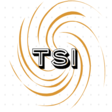Imagine having a brilliant invention in your lab, but it sits unused, its potential locked away. This is where technology transfer offices (TTOs) come in! These unsung heroes bridge the gap between research and the real world, turning innovative ideas into products that benefit society. Let’s explore what TTOs do and how they make a difference:
What is a technology transfer office?
Think of a TTO as a translator and matchmaker. They understand the complex language of research and the needs of businesses. They help researchers commercialize their inventions, meaning turning them into usable products or services.
Who works in a TTO?
TTOs have a diverse team with expertise in areas like:
- Science and technology: They understand the technical details of inventions.
- Intellectual property (IP): They know how to protect inventions through patents and other legal means.
- Business development: They connect researchers with companies and negotiate deals.
- Marketing and communication: They explain technical concepts to diverse audiences.
What does a TTO do?
Here are some key steps in the technology transfer process:
- Identifying inventions: TTOs work with researchers to identify promising inventions with commercial potential.
- Evaluating inventions: They assess the invention’s technical feasibility, marketability, and potential impact.
- Protecting inventions: They file for patents or other IP protection to ensure researchers get rewarded for their work.
- Licensing or selling inventions: They find companies interested in commercializing the invention and negotiate licensing or sale agreements.
- Supporting startups: They may help researchers create startup companies to develop their inventions themselves.
Why are TTOs important?
TTOs play a crucial role in:
- Boosting innovation: They help turn valuable research into practical applications.
- Creating jobs: Commercialized inventions can lead to new companies and jobs.
- Improving lives: New products and services can address societal challenges.
- Generating income for universities: Licensing fees from inventions can support further research.
How can you get involved with a TTO?
If you’re a researcher with an invention, reach out to your university’s TTO. They’ll guide you through the process and help bring your innovative idea to life.
Examples of successful technology transfer:
- The internet: Developed by DARPA, a US government agency, and then transferred to universities and companies.
- Post-it notes: Invented by a 3M scientist and now a widely used office product.
- Cancer therapies: Many life-saving drugs originated from university research and were commercialized with TTO support.
What is the main function of a technology transfer office with respect to collaborative research?
A Technology Transfer Office (TTO) plays a crucial role in facilitating collaborative research by acting as a link between academia and the business world. It manages intellectual property, fosters collaboration, negotiates agreements, promotes commercialization, secures funding, and supports entrepreneurship. Some of the main functions of a TTO in collaborative research include:
- Facilitating Commercialization: TTOs help transform cutting-edge research into useful goods, services, and procedures by utilizing their expertise in these areas.
- Management of Intellectual Property: TTOs manage and profit from intellectual property gathered through various research and development efforts.
- Making Collaboration and Partnership Possible: TTOs promote academic-industry cooperation by locating potential business partners who can profit from the institution’s research results.
- Helping Find Funding Resources: TTOs assist in securing funding for research projects by connecting researchers with relevant stakeholders.
- Supporting Entrepreneurship: TTOs nurture an entrepreneurial culture within academia, encouraging the translation of research into innovative products and services that drive economic growth.
- Carrying Out the Process of Negotiation: TTOs negotiate agreements between researchers and industry partners, ensuring that both parties benefit from the collaboration.
- Managing Licensing: TTOs manage the licensing process, ensuring that intellectual property is properly protected and commercialized.
- Facilitating Knowledge Transfer: TTOs act as intermediaries, enabling the transfer of information, discoveries, and technologies from academic settings to the marketplace.
By performing these functions, TTOs bridge the gap between theoretical and practical implementations, fostering innovation, economic growth, and societal advancement.

